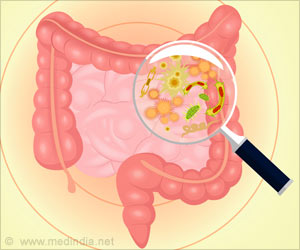Prenatal exposure to platicizers like DEHP may affect male fertility in future generations. DEHP is present in various industrial and consumer products like plastic toys, PVC pipes and cosmetics.
Highlights:
- Prenatal exposure to DEHP may affect male fertility in future generations.
- The chemicals may lead to reproductive abnormalities like decreased sperm count and sperm mobility .
- DEHP is an endocrine-disrupting chemical
The study found a chemical called endocrine-disrupting chemicals present in the plasticizer that affected the hormones present in the body. The effect of the chemical may extend to successive generations. "Sperm counts among men have dropped substantially over the last few decades, but the reason for such an alarming phenomenon is not known. These results suggest that when a mother is exposed to an endocrine disruptor during pregnancy, her son and the son’s future generations may suffer from decreased fertility or hormone insufficiency," said lead author Radwa Barakat, B.V.S.C., M.Sc., of the College of Veterinary Medicine, University of Illinois at Urbana-Champaign, Urbana, Ill. The scientists studied the effect of DEHP (di-(2-ethylhexyl) phthalate), the most widely used endocrine-disrupting chemical. DEHP is found in a wide range of industrial and consumer products, including polyvinyl chloride (PVC) piping and tubing, cosmetics, medical devices and plastic toys. A group of male mice were exposed to DEHP prenatally and the results indicated that the male mice had significantly less testosterone in their blood and fewer sperm in their semen and also became infertile at a very young age.
TOP INSIGHT
Prenatal exposure to DEHP may lead to male infertility
The researchers gave four doses of DEHP or a type of corn oil to pregnant mice, from 11 days after they conceived until birth.
The adult males born to these mice were mated with unexposed female mice, to produce a second generation of mice. Then young adult male from second generation were mated with unexposed females to produce a third generation. The scientists then measured the sex hormone levels, sperm concentration and sperm motility in each generation of mice when they were 15 months old.
The second generation males, which descended from mice with highest DEHP exposure had abnormal reproductive results like lower testosterone concentration, sperms levels and sperm motility. Third generation males which descended from mice that were exposed to minimal DEHP also had reproductive issues. The results indicated that the lowest DEHP dose group exhibited the greatest abnormalities.
"This study underscores the importance of educating public to try their best effort to reduce their exposure to this chemical and also the need to substitute this chemical with a safer one," Barakat said.
Source-Medindia
 MEDINDIA
MEDINDIA





 Email
Email










